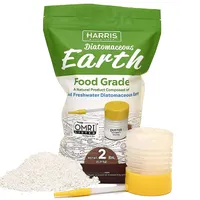Do peonies attract ants? Discover the surprising beneficial relationship between plant and insect
What is it that attracts ants to peonies and is their presence bad for the plant?

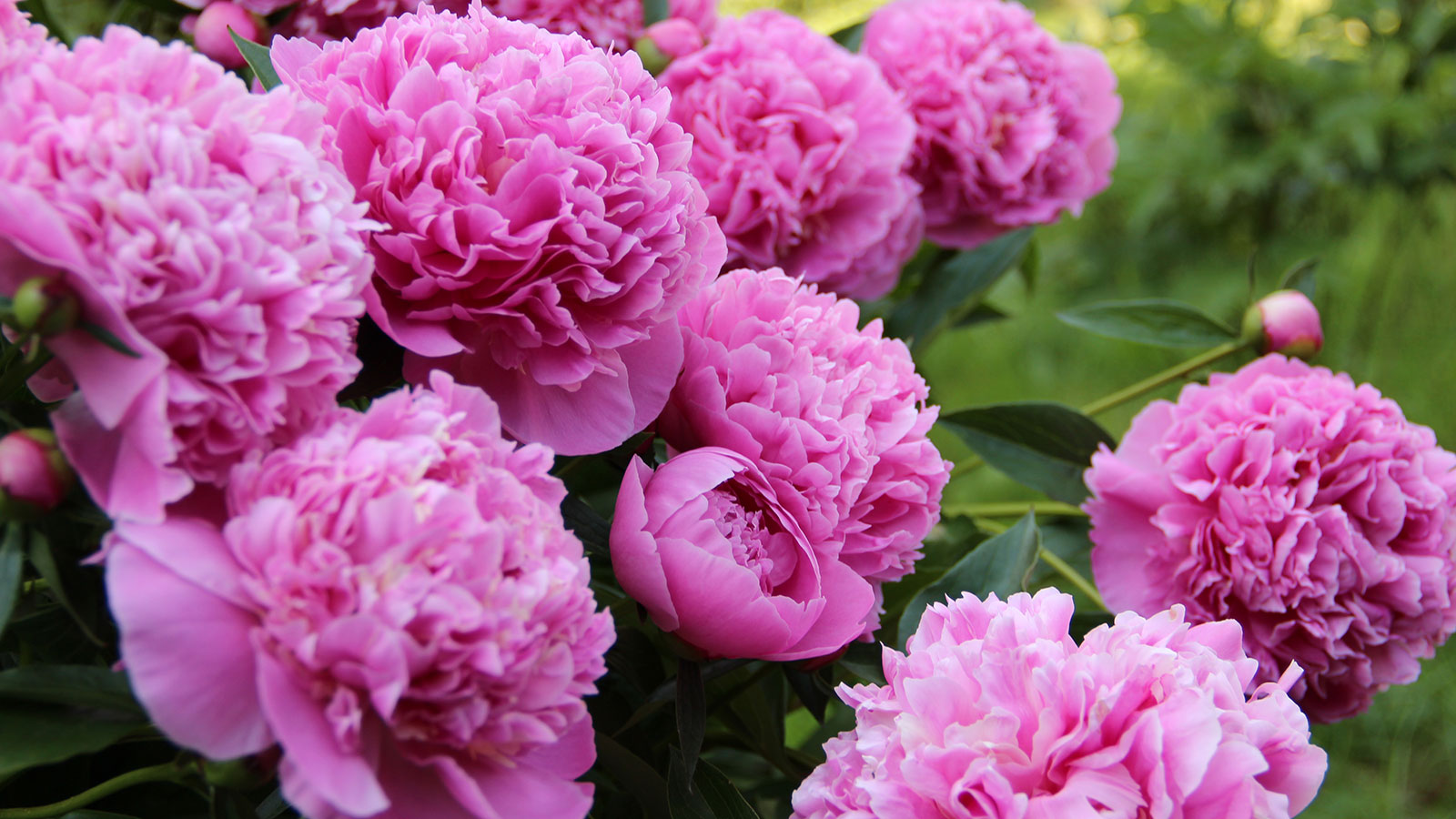
Design expertise in your inbox – from inspiring decorating ideas and beautiful celebrity homes to practical gardening advice and shopping round-ups.
You are now subscribed
Your newsletter sign-up was successful
Want to add more newsletters?

Twice a week
Homes&Gardens
The ultimate interior design resource from the world's leading experts - discover inspiring decorating ideas, color scheming know-how, garden inspiration and shopping expertise.

Once a week
In The Loop from Next In Design
Members of the Next in Design Circle will receive In the Loop, our weekly email filled with trade news, names to know and spotlight moments. Together we’re building a brighter design future.

Twice a week
Cucina
Whether you’re passionate about hosting exquisite dinners, experimenting with culinary trends, or perfecting your kitchen's design with timeless elegance and innovative functionality, this newsletter is here to inspire
Peonies are loved for their large and showy blooms, however these perennials are known for often being covered in ants during late spring.
The ants are actually attracted to the nectar produced by peony buds and are only around for a short timeframe. The ants do no harm to the peonies and their presence can actually be helpful for the plant. Contrary to popular belief, however, peonies do not need the ants to bloom.
If you are growing peonies, then you are likely to experience an influx of ants to your plants each year. While it is unnecessary to feel the need to get rid of the ants, there are simple and chemical-free ways to deal with the insects.
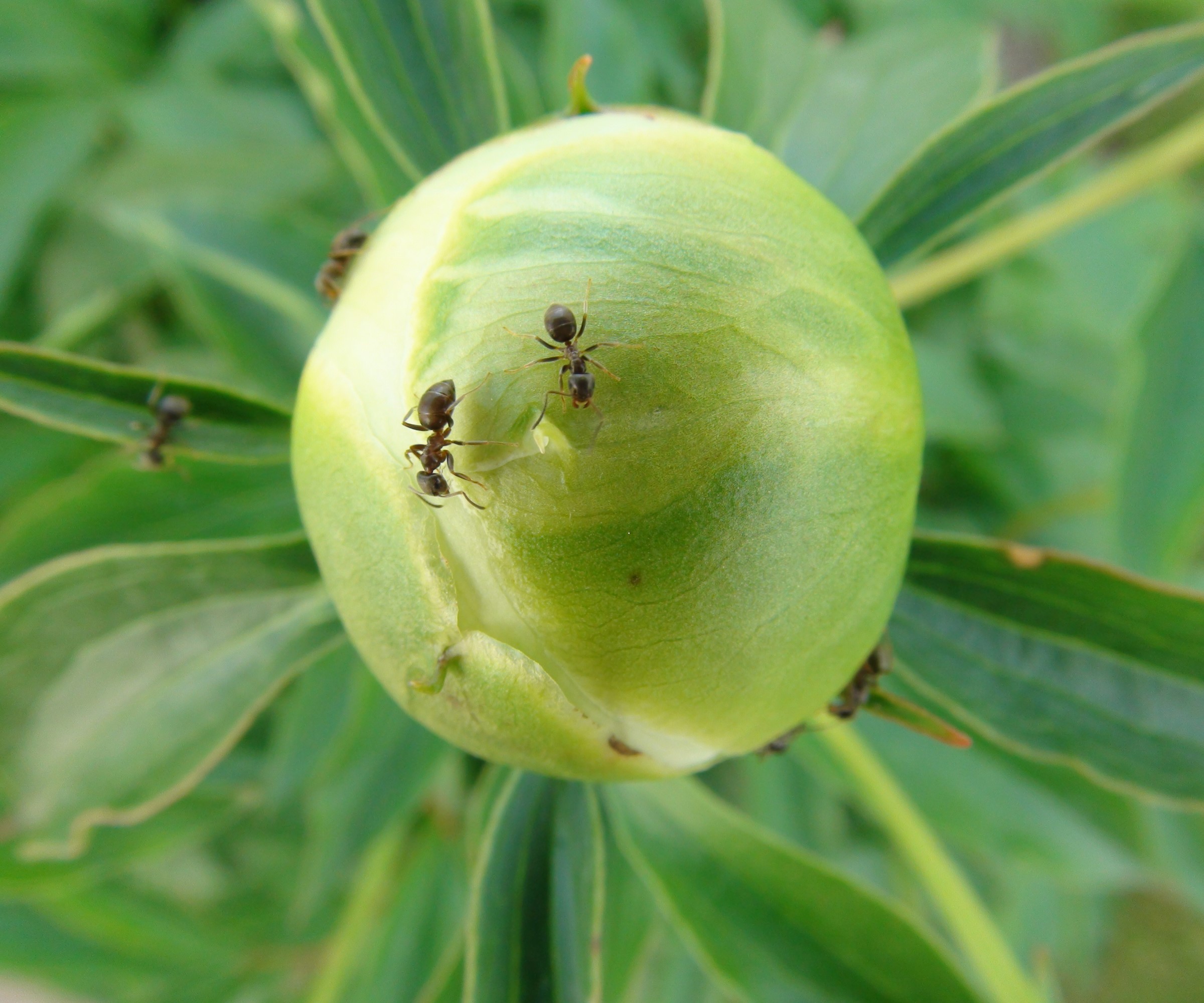
Ants are a common sight on peony buds before they bloom
Why do peonies attract ants?
It is the peony buds that are responsible for attracting acts, in particular the sugary sap that these organs secrete. Research has found that the peony buds produce a nectar full of sugars and acids just before they are about to bloom, and that is a great food source for the ants.
When one scout ant discovers this bounty, it will emit a pheromone trail all the way back to the nest. This is a high-alert message that is picked up by the rest of the colony, which will follow that trail in vast numbers back to the bud. The ants can be seen in huge numbers over the buds, consuming this precious nectar that is only available until the flower blooms. Once the petals have fully opened, the ants disappear off to another bud or plant.
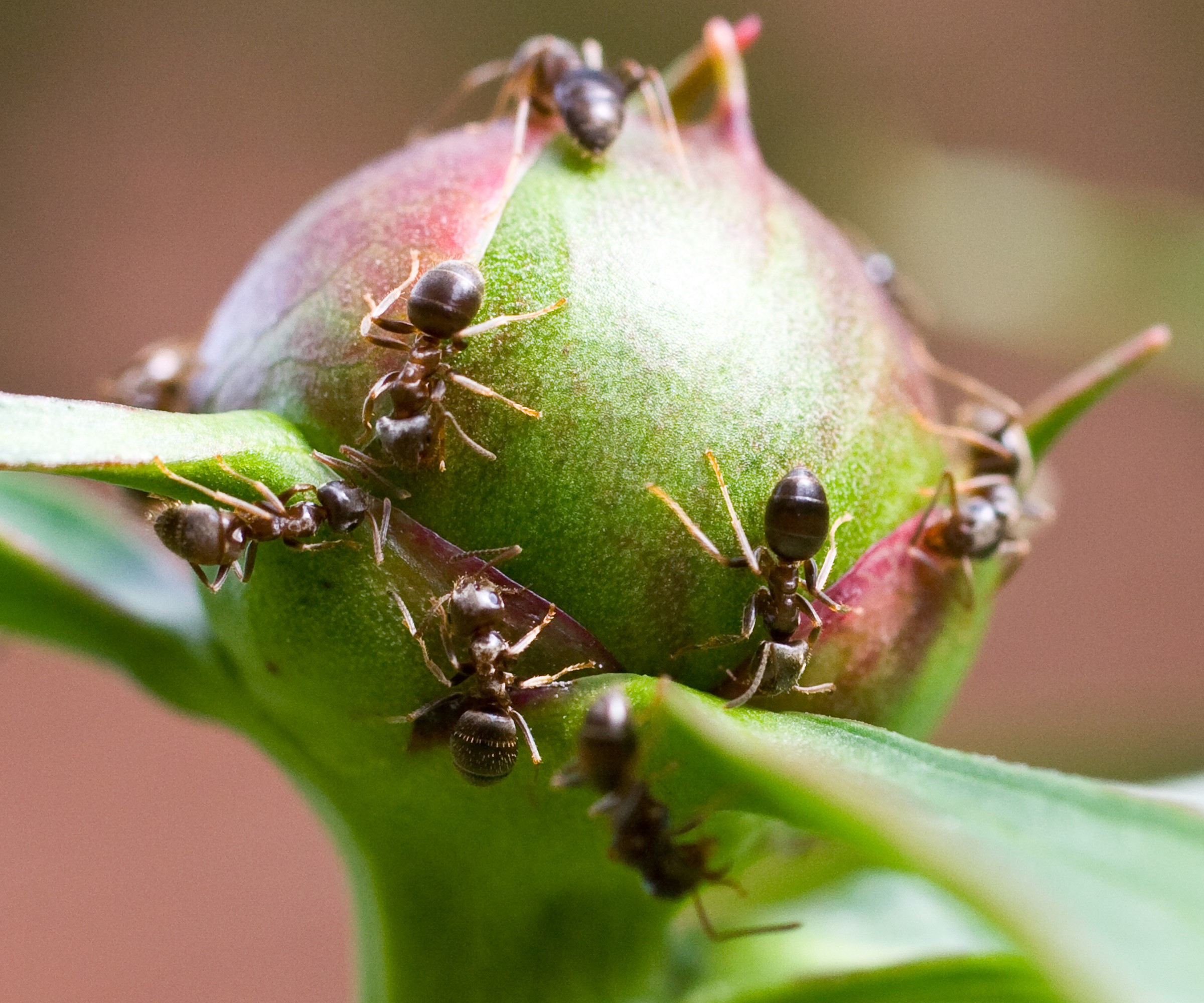
The ants feed on a sweet nectar produced by the bud
What do ants do for peonies?
It may only be a fleeting relationship between the ants and the peonies, but it is a mutually beneficial one. The ants are around until the flowers have opened and then move on once the food source is gone. Many people automatically assume that ants are bad for a garden, but it is not always the case as during the time the ants are actively feeding on the sap, they help to protect the peony buds.
The ant's presence keeps the flower buds protected from other insects that may want to nibble on petals or feed on sap from the plants.
Design expertise in your inbox – from inspiring decorating ideas and beautiful celebrity homes to practical gardening advice and shopping round-ups.
Ants offer protection from the likes of aphids and thrips, tiny insects that suck sap from leaves, stems, and buds, causing plants to lose leaves, have distorted stems, and prevent buds from opening. Aphids also excrete a substance that encourages black mold, while thrips can feast on buds and be a reason why peonies are not blooming.
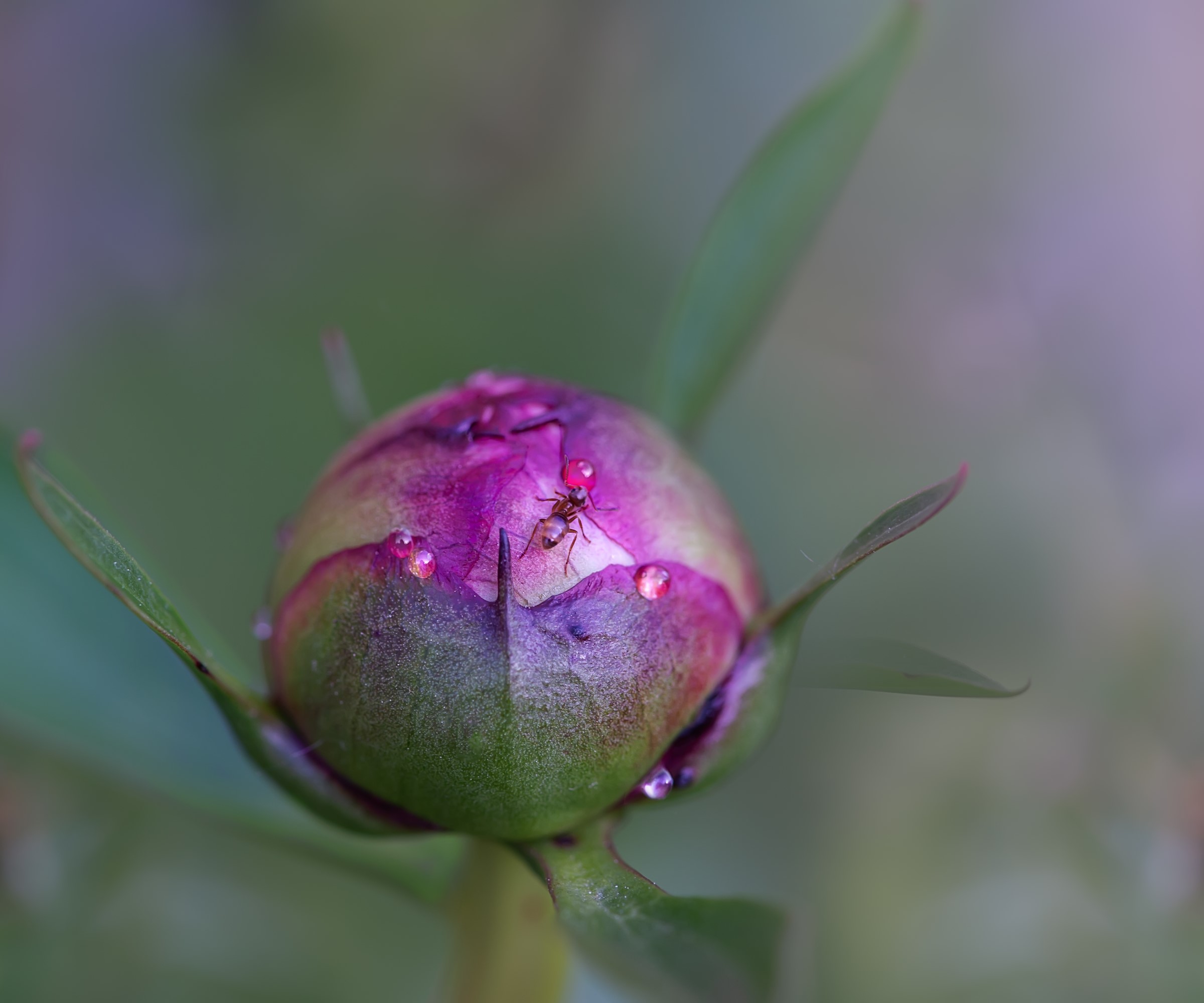
Ants prevent aphids or thrips from feeding on the buds
How to deal with ants on peonies
It is important to point out that the ants do not actually cause any harm to the peonies and their presence is only temporary, so it is not really necessary to take measures to keep them off the plants. The only time it may seem vital is if the ants are causing problems elsewhere in the backyard as well.
Miguel Palma, a professional gardener and owner of Jardin Tienda, says that peonies ‘will flourish and display their beauty regardless of the presence or absence of ants’ and the presence of ants will only cause small imperfections.
‘Although the ants' exploration may result in minor holes or marks on the flower buds, these imperfections are negligible and do not hinder the overall health or blooming process of the peonies,’ he adds.
‘If you prefer to minimize ant activity on your peonies, you can take a few measures. Gently rinsing the peony buds with water can reduce the attraction of ants by removing some of the nectar.
'Creating a physical barrier around the base of the peony plants using natural repellents, or substances like using cinnamon in soil or diatomaceous earth can also deter ants from climbing up the stems.’
Another method of getting rid of ants off peonies include companion planting and growing aromatic herbs such as mint or lavender. These plants are two of many that emit smells that ants hate and can discourage their presence.
You can use chemical products, insecticidal soap, or neem oil sprays, however, these should be used with caution as they can also kill beneficial insects as well as the ants.
Harris Diatomaceous Earth | $14.99 at Amazon
Food grade diatomaceous earth with a powder duster included for easy and efficient application. It is harmless to pets, humans and plants when used correctly, but can help get rid of all sorts of garden pests, including slugs, snails, mites, and ants.

Miguel Palma is a professional gardener with over 20 years of experience in the horticultural business. He is the owner of JardinTienda, a site dedicated to reviewing gardening products and providing independent buyers guides.
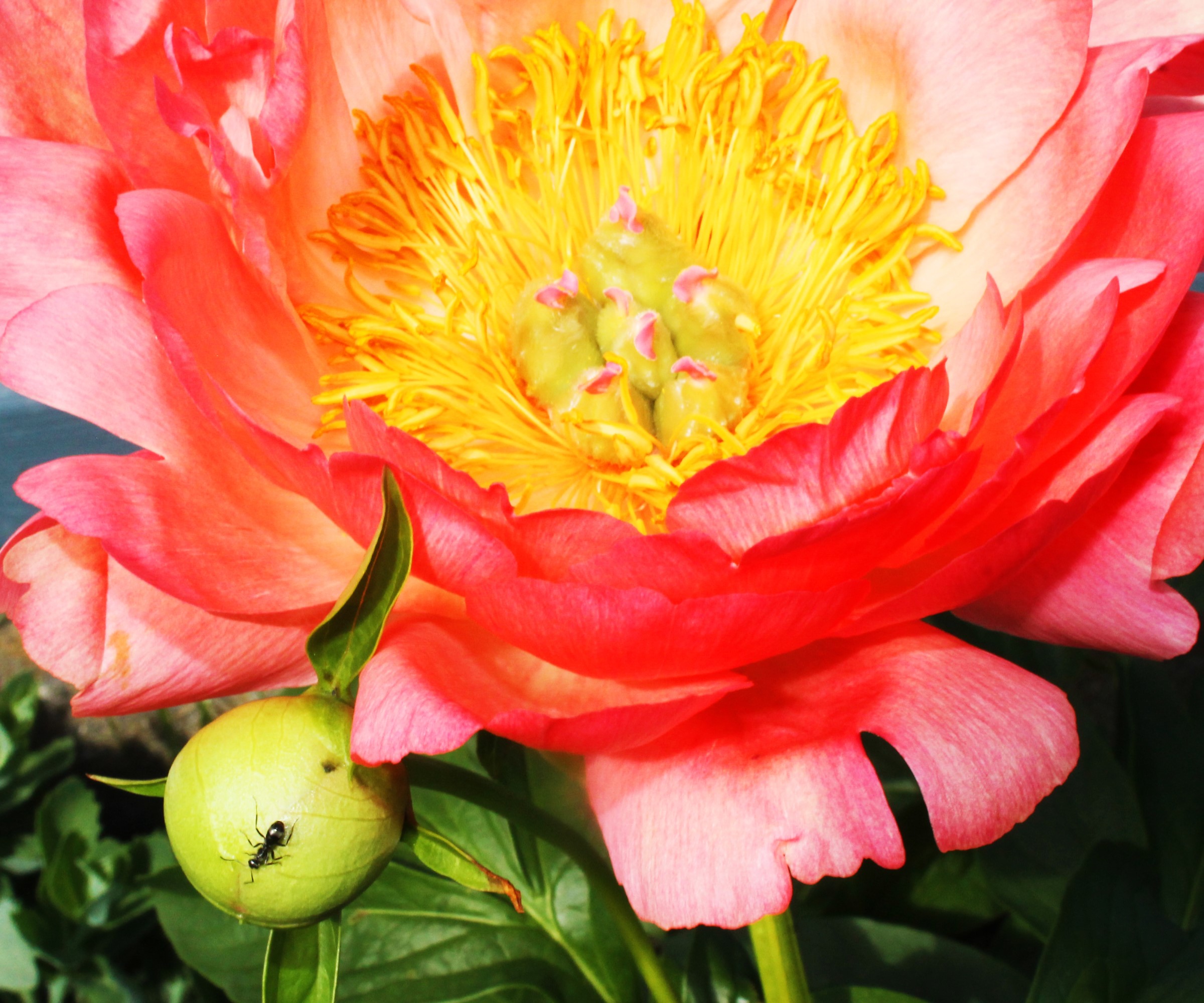
The ants will leave the flower once it opens
How to get rid of ants when cutting peonies
If you are growing peonies as part of a cut flower garden to then display their beautiful blooms in the home, then care should be taken to make sure that there are no ants coming into the house with the flowers.
Hold the flower stems upside down and give them a good shake around to remove any ants. An alternative is to gently rinse each individual peony bloom with cold water to dislodge any remaining insects. It is also possible to add some soap to the water, this will deal with any ants without harming the flowers.
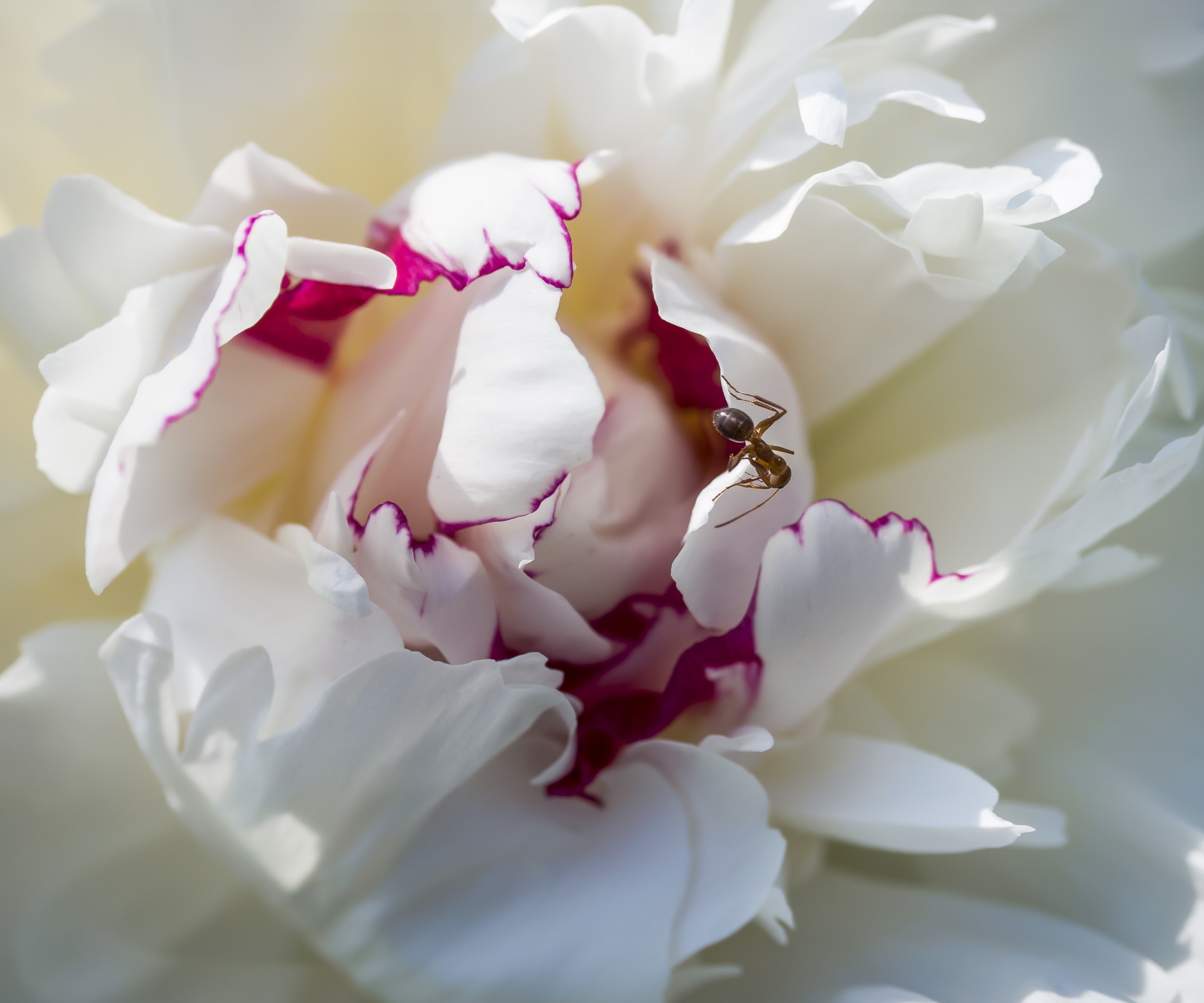
Blooms can be rinsed with water to remove any lingering ants
FAQs
Do peonies need ants to bloom?
There was a long-standing notion that peonies actually need the ants to be able to bloom, but that is now regarded as a myth. The folklore thought that the ants aided the peonies and helped them to unfurl their petals, but, while the ants help with pest control, they play no role in actually helping the peonies to bloom.
Tonya Lawson from The Suburban Garden claims: ‘While ants definitely help peony blooms open faster, a peony can still bloom without the aid of ants. This myth is most likely still around because ants are considered beneficial insects to the peony plant, keeping pests like aphids and thrips at bay and allowing the peonies to thrive.’
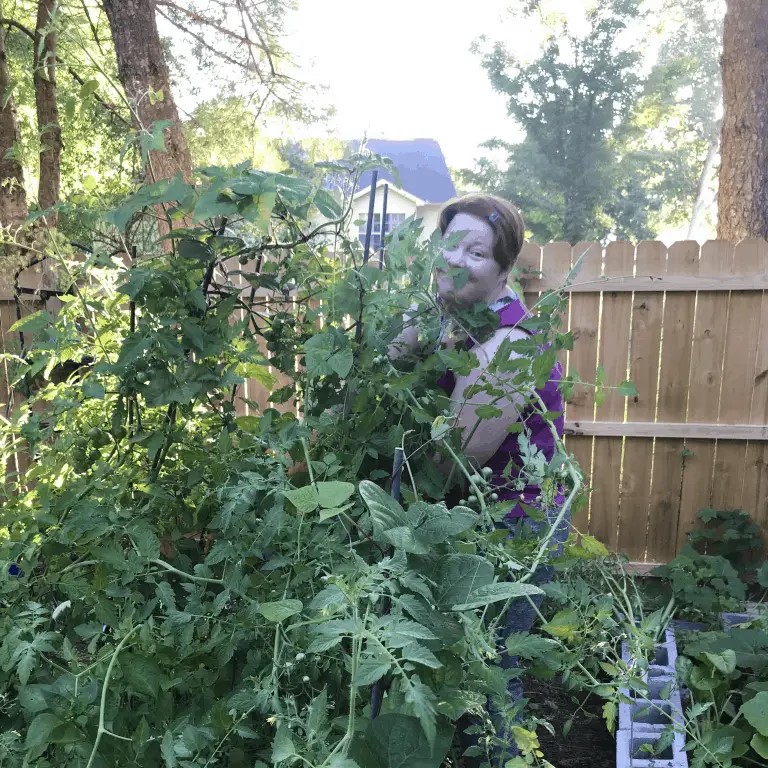
Tonya Lawson is a long-time home gardener as well as the founder and CEO of The Suburban Garden, a website dedicated to providing practical and informative content on all things home gardening. She started gardening in containers on the balcony of her first apartment and now gardens in raised vegetable and flower beds on a small quarter-acre suburban property.
It is perhaps surprising to learn that ants can have beneficial symbiotic relationships with peonies. Most people will see ants on the buds and suspect they are a problem, but actually they are protecting blooms and will move on without causing damage. Don’t be too quick to reach for the chemical bottle to deal with insects as you can all-too-easily get rid of helpful and beneficial insects. Growing peonies means you can enjoy their stunning and huge blooms, just don't be too put off by the ants and remember they are doing you a favor.

Drew has worked as a writer since 2008 and was also a professional gardener for many years. As a trained horticulturist, he worked in prestigious historic gardens, including Hanbury Hall and the world-famous Hidcote Manor Garden. He also spent time as a specialist kitchen gardener at Soho Farmhouse and Netherby Hall, where he grew vegetables, fruit, herbs, and cut flowers for restaurants. Drew has written for numerous print and online publications and is an allotment holder and garden blogger. He is shortlisted for the Digital Gardening Writer of the Year at the 2025 Garden Media Guild Awards.
